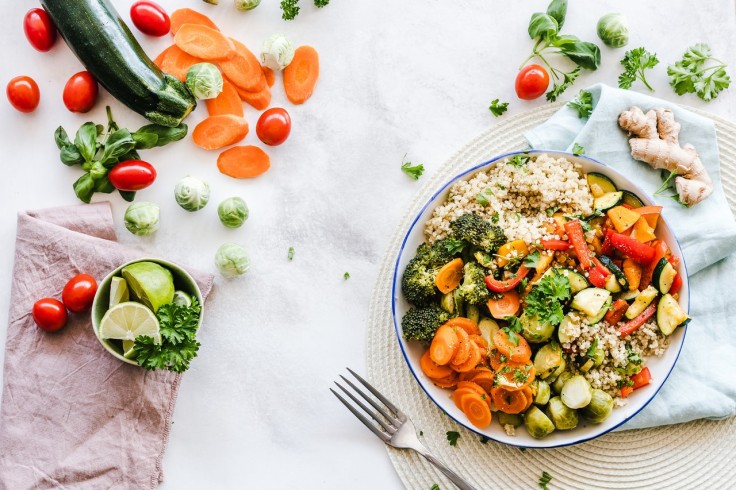
Due to lack of exercise and poor lifestyle, college students often develop stress that can lead to chronic inflammation. It happens when the immune system starts emitting chemicals that should defend the body from injury and bacterial and viral infections, even without foreign bodies to fight off.
That is why an anti-inflammatory diet is developed by health experts. It prevents low-grade chronic inflammation that can be the cause of serious health problems and major diseases such as asthma, cancer, depression, stress diabetes, ulcerative colitis, strove and many more. This diet focuses on the proper combination of fruits, vegetables, seeds, nuts, lean protein, and healthy fats.
Foods for Anti-inflammatory Diet
High consumption of vegetables, fruits, nuts, fish, seeds and healthy essential oils can help lessen the risk of having inflammatory diseases. Food with antioxidants and omega 3 fatty acids are a great source of anti-inflammatory nutrients.
Antioxidants have many purposes apart from promoting the best anti-inflammatory diet. They are substances that reduce damage to healthy cells caused by free radicals. Anti-oxidants can be found naturally and artificially. It helps our body to neutralize free radicals to boost our entire health, especially when incorporated with anti-inflammatory diet recipes.
Foods rich in anti-oxidants.
- Oranges
- Berries (such as blueberries, raspberries, and blackberries, goji berries)
- Cherries
- Apples
- Artichokes
- Avocados
- Dark green leafy vegetables (such spinach, and collard greens)
- Sweet potatoes
- Broccoli
- Nuts (such as walnuts, almonds, pecans, and hazelnuts)
- Beans (such as red kidney beans, pinto beans, and black beans)
- Lean meat
- Milk
- Seafood
- Dark chocolate (7/10 cocoa content)
- Foods high in omega-3 fatty acids include:
- Oily fish (like salmon, herring, mackerel, sardines, and anchovies)
- Walnuts
- Chia seeds, flaxseed, quinoa
- Omega-3-fortified foods (including eggs and milk)
Avoid foods high in omega-6 fatty such as:
- Meat
- Dairy products
- Margarine
- Vegetable oils
Instead of vegetable oils, choose to use oils like olive oil and avocado oil.
Benefits of an Anti-Inflammatory Diet
A lot of experts suggest that an anti-inflammatory diet can do an important part when it comes to health conditions. A specific study assessed the association between dietary inflammation and atherosclerosis in women over the age of 70. Researchers found that dietary inflammatory index scores were associated with subclinical atherosclerosis and heart-disease-related death.
Meal Ideas
Breakfast foods:
- Oat porridge with berries
- Breakfast smoothie made from natural fruits and high in anti-oxidants
- Chia bowl
- Buckwheat berry pancakes
- Scrambled egg with avocado
- Smoked salmon
- Poached egg and wheat bread
Lunch:
- salad with quinoa and vegetables,
- broccoli soup,
- grilled salmon
- avocado sandwich
- spinach and feta frittata
- quinoa and citrus salad
- lentil, beetroot, hazelnut salad
Snacks:
- fresh blueberry fruit salad,
- apples
- Nuts like walnuts,
- chia seed pudding
- guacamole.
Drinks: ginger turmeric tea, milk, green juice, green smoothie, herbal tea, turmeric tea, green tea.
Tips on Following an Anti-Inflammatory Diet
- Consume four to seven servings of fruits and vegetables rich in antioxidants each day.
- Avoid your intake of foods high in omega-6 fatty acids while increasing your consumption of foods rich in omega-3 fatty acids (such as flaxseed, walnuts, and oily fish like salmon, tuna, mackerel, and herring).
- Cut-off red meat and replace your protein source to foods, such as lean poultry, fish, soy, beans, and lentils.
- Stop using margarine and vegetable oils and turn for the healthier fats found in olive oil, nuts, and seeds.
- Instead of choosing refined grains, you can replace it with fiber-rich whole grains like oats, quinoa, brown rice, bread, and pasta that list a whole grain as the first ingredient.
- You can enhance the flavor of each meal with anti-inflammatory herbs like garlic, ginger, and turmeric instead of salt.
SEE ALSO: Ketogenic Diet Helps Tame Flu Virus
© 2025 University Herald, All rights reserved. Do not reproduce without permission.








